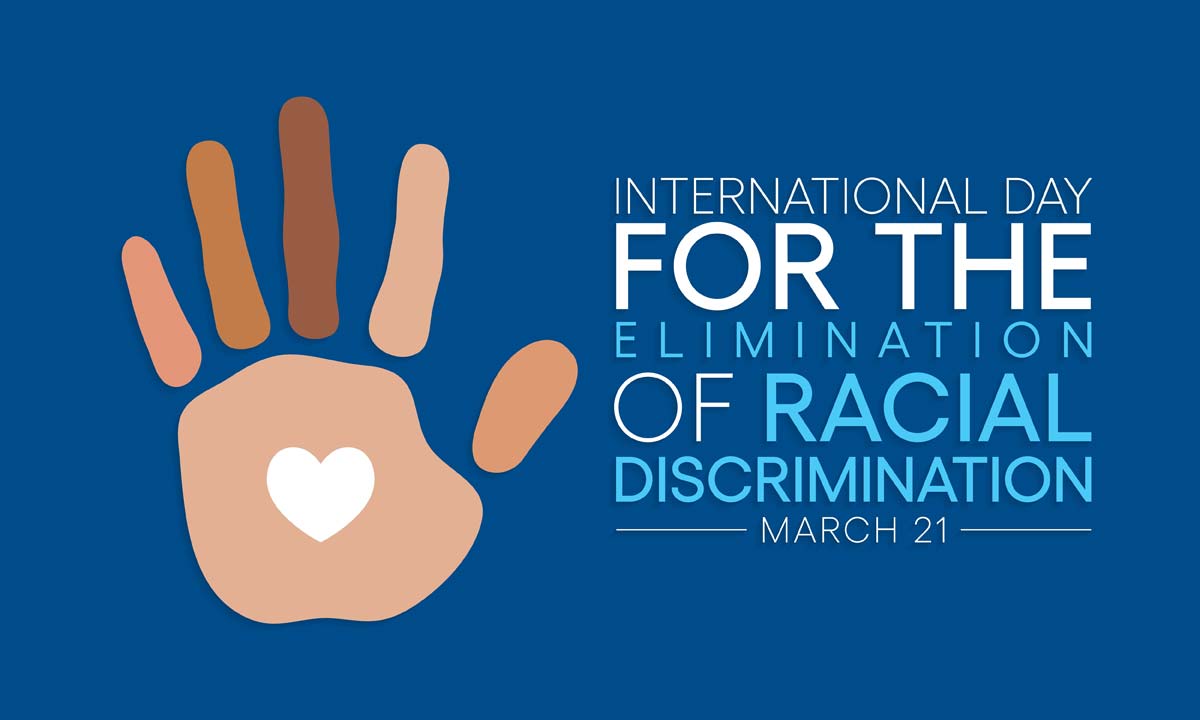
March 21 is the International Day for the Elimination of Racial Discrimination. It aims to lead the world to overcome racism and racial discrimination. It has a message that we must respect different cultures and values, and strive to guarantee equal treatment and opportunity.
It began by commemorating March 21, 1960, when police fired on a crowd of Black people during a peaceful demonstration against apartheid in Sharpeville, South Africa, where 69 people were killed and more than 180 people were injured.
The apartheid was a policy that separated white minority from nonwhite majority from 1948 to 1994, sanctioning racial segregation. During this period, a small number of people, mainly whites, had monopolized power, and other races such as blacks, colored (those of mixed race), and Asians were separated from their rights and opportunities of housing, education, jobs, politics, etc. Apartheid was a tragedy in the history of South Africa. After so many attempts, South African President Nelson Mandela declared its abolition on April 27, 1994.

Many made efforts and sacrificed to eliminate discrimination, and Sharpeville massacre became a turning point in the struggle against apartheid and also a symbol of fighting against racism around the world.
After this incident, the UN adopted a resolution for international efforts to protect human dignity and rights from racism and racist treatment, which was adopted as part of the International Convention on Human Rights. In 1979, the United Nations officially designated the International Day for the Elimination of Racial Discrimination, and since then, various events and campaigns have been held around the world every year for combating racial discrimination and racism.
Racism Still Remains

The year 2023 marks the 75th anniversary of the adoption of the Universal Declaration of Human Rights. Seventy-five years ago, the international community acknowledged that rights are inherent to every single human being without distinction of any kind. Yet still many people suffer from racism all around the world. Racism can appear in veiled ways such as subtle discrimination or in more explicit and violent forms such as hate crime.
Through the Universal Declaration of Human Rights, the international community acknowledged that all human beings are born free and equal in dignity and rights, and by ensuring human rights, they confirmed that each individual has the potential to contribute constructively to the development and well-being of society. In its most recent resolution, the UN General Assembly emphasized that any doctrine of racial superiority is scientifically false, morally condemnable, socially unjust and dangerous, and must be rejected.
“Wherever we see racism, we must condemn it without reservation, without hesitation, without qualification.”
Antonio Guterres, United Nations Secretary-General
Action Against Racial Discrimination

The International Day for the Elimination of Racial Discrimination aims to raise awareness of the effects of racism and celebrate the progress of eradicating it. It is to realize that we all have a role to play in making the world fair. We need to think about how we can contribute to a more inclusive society, and commemorate the diversity that makes the world beautiful.
There are several ways to combat racism:
- When you see racism or hate speech in day-to-day life or online, report it without being silent.
- Take part in open and constructive discussions with social community to find specific solutions, and join online conversations via #FightRacism.
- Search for the stories of those who fight against racism by spreading the message that racism can be eradicated in the world.
- Use awareness-raising social media channels and everything possible to express and share your support.
- Find out how racism affects our society and seek specific solutions to eradicate it.
- Have opportunity to interact with naturalized citizens in order to understand how racism affects them regardless of race, religious belief or culture.
- Educate children and youths against discrimination.
- Empower the future generations to fight against racism and let them have respect for one another. Do not hesitate to discuss racism and discrimination with children in an age appropriate way in the classroom and at home, while respecting diversity and difference and suggesting how to act in their daily lives.
- Provide Time and Techniques: Take time to share your techniques to support groups that make efforts to eliminate racism.
- Donate: Make financial donations for organizations that combat racism.
- Exercise your rights.
- Freedom of Association: Join organizations to promote the rights of minorities in community.
- Right to Participate in Politics: Promote anti-racist policies by voting for political organizations which are working for eliminating racism, and by contacting the elected representatives.
- Right to Freedom of Expression: Sign petitions in support of the anti-racism movement.
- Participate in peace demonstrations.
“No country can claim to be free of racism, that racism is a global concern, and that tackling it requires a universal effort.”
The Durban Declaration and Programme of Action [DDPA]